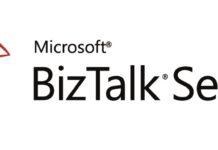If you’re developing a SharePoint-based public Internet portal, you’re probably using the BLOB (Binary Large Object) cache. This caching mechanism stores a copy of the binary files (images, documents and such) in the file system of each front-end web server. This can save a lot of database accesses, thus improving the performance of the web site.
As for any caching mechanism, it is possible that the BLOB cache becomes out-of-sync with the content database, storing an old version of a file that has been updated in the content database.
The quickest way to re-sync the BLOB cache is to flush it and let SharePoint repopulate it with the current version of the binary files. Flushing the BLOB cache can only be done through a PowerShell script (since there is no place for it on the SharePoint UI):
$webApp = Get-SPWebApplication "<WebApplicationURL>" [Microsoft.SharePoint.Publishing.PublishingCache]::FlushBlobCache($webApp) Write-Host "Flushed the BLOB cache for:" $webApp
In which <WebApplicationURL> is the URL address of the web application for which you want to flush the BLOB cache.
You can find additional information in: http://technet.microsoft.com/en-us/library/gg277249.aspx


![[FIX] BizTalk Server 2010, 2013, 2013 R2 & 2016 errors “Class not registered (WinMgmt)” or “Access denied”](https://blogit.create.pt/wp-content/uploads/2018/07/access-black-and-white-blur-270514-218x150.jpg)














